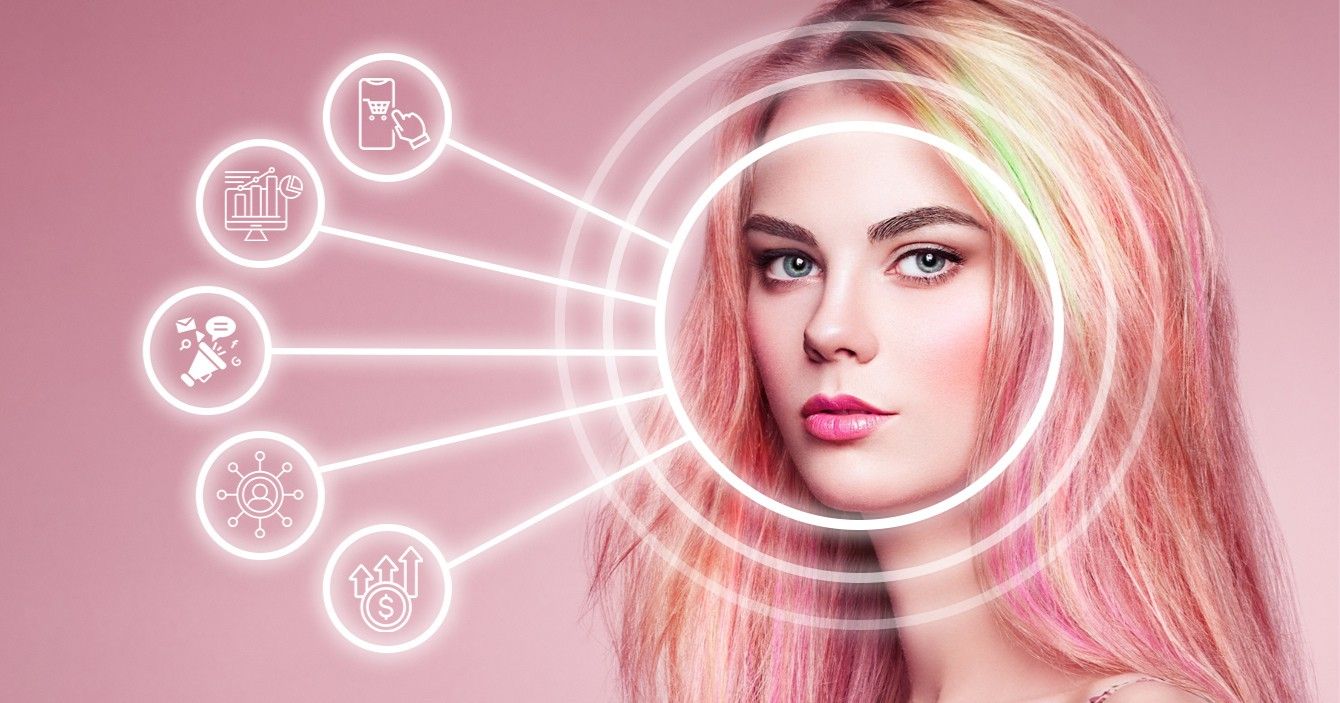5 Ways Beauty Tech is Shaping the Cosmetics Industry in 2023

They say beauty lies in the eye of the beholder, and within the context of a digital revolution, beauty and beauty products now lie in AI and AR technologies. Technology has made beauty brands, products, and services conveniently accessible to anyone looking to experience and experiment with cosmetics products within the comforts of their homes.
Beauty tech uses AI (artificial intelligence) and AR (augmented reality) to make a plethora of products available for real-time virtual try-on without having to buy that product. With its easy-to-use and effective technology, Beauty AI has brought a roundabout shift in the cosmetics industry.
Post-pandemic, market demand, as well as strategies, have evolved into inculcating the merits of technology for enhancing customer experience, creating and sustaining a market base for new products in the field of cosmetics, skincare, haircare, retail, and other services. As the world shifts to a technologically advanced age, Beauty tech has truly become mainstream in 2022.
Here are 5 ways in which Beauty technology can be highly beneficial for both beauty brands and customers.
1. Personalized Shopping Experience
With the growing advent of experimentation and consciousness about skin types and suitability, customers today prefer shopping experiences catering to their needs. Moreover, customers prefer solutions that value their time and provide efficient online services. Forrester data shows that 55% of US online adults are likely to abandon their online purchase if they cannot find a quick answer to their question.
How does Beauty tech make shopping customized?
- Beauty tech uses AI to recognize skin types, problems, and suitability.
- It recommends personalized products according to customer needs.
- With AI, experimenting with new products like lipsticks of different shades, hair colors or foundation becomes easy. Customers can see how a product looks on their faces and choose accordingly.
- The facial features of the end user are recognized by AI, recommending products specifically designed for the consumer.
2. Capture Customer Insights and Behaviour
There's nothing more special and delightful for the customer than being seen and recognized. It is vital to understand the prerequisites and shopping behavior of a customer to offer them the aptest product from your collection. This can only be done if you have suitable knowledge and input about the customers’ purchase history, preferences, skin type, and other essential insights.
Cosmetics brands can leverage Beauty AI to gain valuable insights and improve their marketing mix. It eases both online and offline shopping experiences for users as it maps and analyses the entire customer journey across multiple touchpoints.
3. Data-Driven Marketing
The captured data can be leveraged for better marketing communication. Not only this, products can be improvised and developed using the data available by understanding the customer's profile.
Data-driven marketing is not only possible but is highly effective, as experienced on social media websites. By studying this data, cosmetics brands can segment customers on various parameters. Hyper-targeted marketing campaigns can be planned with a high conversion rate.
4. Omni-Channel Approach
Having a traditional and single approach is a thing of the past. The scope of Beauty tech widens when it is accessible to customers on both online and offline mediums like retail, web, in-app, tablets, and across social media. With an omnichannel approach, you can directly deal with customers without meeting them physically.
You can take your brand to your customers wherever they are - their homes, cosmetics shops, while traveling, malls, or even a business park. Brands consequently widen their customer base and enhance their business outreach with the help of Beauty AI, which facilitates omnipresence.
5. Untapped Revenue Streams
While helping companies boost their sales, Beauty AI can also generate a new source of revenue through brand partnerships for online and retail marketplaces. Another step towards an omnipresent shopping experience, offline retail stores can leverage Beauty technology to enhance their sales by using digital kiosks or smart mirrors in their stores for selected cosmetics brands.
Whenever a customer buys products from these brands using the smart mirror or kiosk recommendation, the retail outlets generate revenue on a commission basis. Remunerative brand partnerships can be forged if the same is replicated for online marketplaces. Beauty AI can be highly beneficial to launch a new product or enhancing the reach of a particular product in the market.
Final Words
With technological advancements revolutionizing market demand and customer expectations from beauty brands, it is high time that cosmetics companies leverage the efficacy of Beauty AI for online as well as offline channels.
Curious to know more? Talk to our AI Beauty Expert.
Also, read- Going Beyond Beauty AR In Your Retail Store To Drive More Sales
